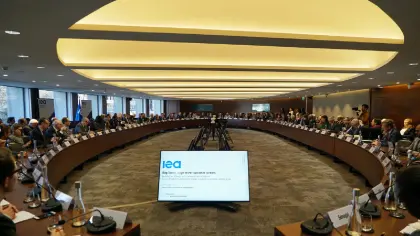Europe’s natural gas supplies are at “unprecedented risk” for the coming winter as a result of Russia cutting off the majority of pipeline resources leading to Europe, according to the International Energy Agency’s latest report.
The IEA, which is a Paris-based autonomous intergovernmental organisation, said Europe might suffer from competition from Asia for ship-delivered liquefied natural gas, which is already scarce and expensive.
In this latest report, the agency noted that European Union countries would have to reduce gas consumption by 13% during the winter period in the event of a complete shutdown of supplies by Russia. Much of this reduction would be due to changes in consumer behavior, such as lower temperatures, as well as savings made by industry and utility firms.
The EU recently adopted a decision to reduce electricity use by at least 5% during peak hours. Only a tiny portion of Russian gas still travels through pipeline projects in Ukraine, throughout the Black Sea in Turkey, and into Bulgaria.
The IEA study also identified a late-winter cold snap as a potential threat. This would be particularly difficult because late in the season, underground gas reserves are slower to come online due to lower gas and storage pressure. The EU currently has storage capacity at a level of 88% by winter, which is ahead of its goal of 80%.
Some business owners in Europe have already reduced their use of natural gas, sometimes by simply halting production of energy-intensive products like steel and fertiliser.
The 19 EU member states that use the euro are experiencing record inflation due to the high cost of gas, which is used to heat homes, produce electricity, and carry out industrial processes. As a result of record inflation and the resulting fall in consumer purchasing power, economists are forecasting a recession in the European economy in late 2022 and early 2023.
Governments and utilities in Europe have largely compensated for Russia’s shortfall by purchasing pricey LNG shipments that are transported by ship from countries like the U.S. and Qatar and by increasing pipeline resources from Norway and Azerbaijan.
You can also highlight the text and press Ctrl + Enter



